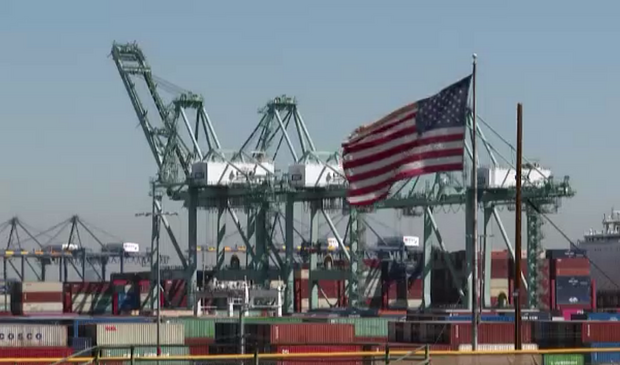
Since Donald Trump's inauguration as president, US tariff revenue has significantly increased, surpassing $100 billion. According to Axios, analyzing data from Customs and Border Protection (CBP), measures implemented since President Trump's inauguration on January 20 this year have generated a total of $106.1 billion (approximately 143.2562 trillion Korean Won) in tariff revenue as of June 27. Of this, $81.5 billion was generated from new tariffs imposed after Trump took office. Treasury Department data also shows that tariff revenue for the fiscal year up to the end of May this year increased by approximately 65% compared to the same period last year. If this trend continues, the US's annual tariff revenue is projected to exceed government estimates this year.
Protectionist Stance and Global Tariff Expansion
The tariff policy of the Trump 2.0 administration exhibits an even stronger protectionist stance. While tariff imposition during his previous term was limited to specific items, primarily targeting China, it expanded to all items worldwide on February 1, 2025, signaling the start of a global trade war. In particular, with the confirmation of China's "circumvention exports" through Vietnam and Mexico, the US has raised tariff barriers against virtually all countries, imposing reciprocal tariffs on 183 nations as of April 3. While the Trump administration presents the resolution of trade imbalances and the restoration of manufacturing jobs within the US as the main objectives of its tariff policy, critics argue that this could lead to a reduction in overall welfare for the global economy.
Economic Ripple Effects and Historical Similarities
The tariff bombardment is having various ripple effects on the US economy. According to Wikipedia, during the Trump 2.0 administration, total tariff impositions were expected to exceed $2.5 trillion by April 2025, with the average tariff rate on imported goods projected to rise from 2.5% to 16.5%. Indeed, the Yale Budget Institute stated that the current effective tariff rate in the US is 15.6%, the highest level since the late 1930s, approximately a century ago. A Newsis report indicated that the average effective tariff rate in the US is 17.8%, the highest since 1934.
This is reminiscent of the Smoot-Hawley Tariff Act implemented by the US during the Great Depression in the 1930s. According to the Dong-A Ilbo, this act raised tariffs on imported goods to a maximum of 59.1%, triggering retaliatory tariffs from other countries, which led to a 25% reduction in global trade volume from 1929 to 1932 and a 49% decline in US exports. Such high tariffs can have a "boomerang effect," leading to price increases not only for imported goods but also for domestic products, raising concerns about higher consumer prices and a loss of purchasing power. In fact, in the first quarter of 2025, US GDP growth turned negative, the trade deficit reached an all-time high, and there were signs of deteriorating consumer sentiment and rising unemployment.
Future Tariff Revenue Outlook and Challenges
US Treasury Secretary Scott Bessent anticipated that tariff revenue could exceed $300 billion annually, potentially reaching up to $600 billion, with Peter Navarro, White House Trade and Manufacturing Policy Advisor, forecasting a similar scale of tariff revenue. These predictions demonstrate the Trump administration's strong intention to continue its robust tariff policy. However, high tariff rates are accompanied by inflation pressure and concerns about supply chain shocks, which contribute to uncertainty not only for the US economy but also for the global economy. While the US is achieving tangible results in increased tariff revenue, it faces significant challenges in the form of potential economic side effects and the reorganization of the international trade order.
[Copyright (c) Global Economic Times. All Rights Reserved.]




























